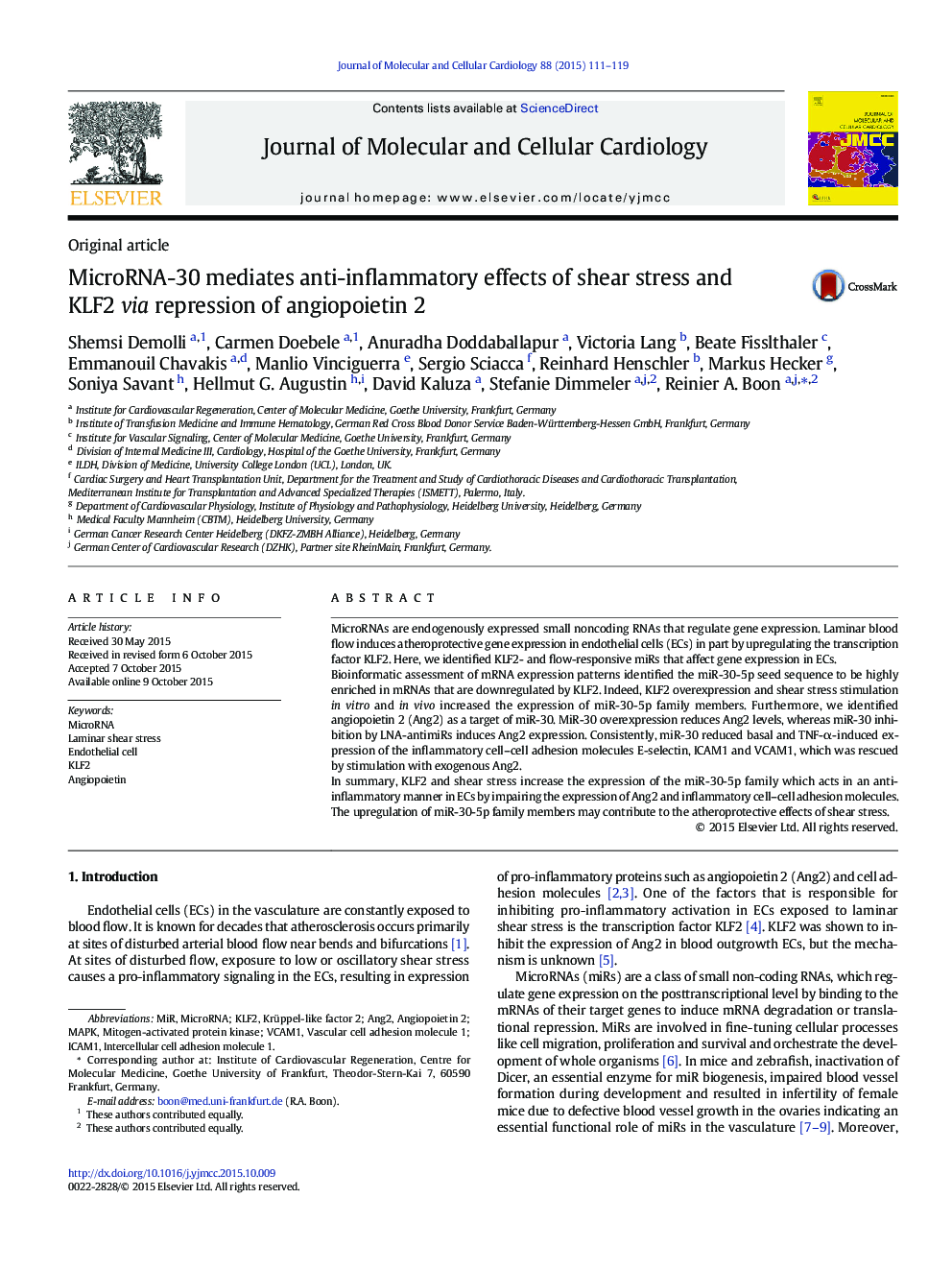| Article ID | Journal | Published Year | Pages | File Type |
|---|---|---|---|---|
| 2190529 | Journal of Molecular and Cellular Cardiology | 2015 | 9 Pages |
•Laminar shear stress induces endothelial miR-30 expression.•MiR-30 expression reduces inflammatory cell adhesion to the endothelium.•MiR-30 inhibits the expression of angiopoietin 2, which results in decreased VCAM1 expression.•MiR-30 upregulation by laminar shear stress may contribute to the atheroprotective effects of laminar shear stress.
MicroRNAs are endogenously expressed small noncoding RNAs that regulate gene expression. Laminar blood flow induces atheroprotective gene expression in endothelial cells (ECs) in part by upregulating the transcription factor KLF2. Here, we identified KLF2- and flow-responsive miRs that affect gene expression in ECs.Bioinformatic assessment of mRNA expression patterns identified the miR-30-5p seed sequence to be highly enriched in mRNAs that are downregulated by KLF2. Indeed, KLF2 overexpression and shear stress stimulation in vitro and in vivo increased the expression of miR-30-5p family members. Furthermore, we identified angiopoietin 2 (Ang2) as a target of miR-30. MiR-30 overexpression reduces Ang2 levels, whereas miR-30 inhibition by LNA-antimiRs induces Ang2 expression. Consistently, miR-30 reduced basal and TNF-α-induced expression of the inflammatory cell–cell adhesion molecules E-selectin, ICAM1 and VCAM1, which was rescued by stimulation with exogenous Ang2.In summary, KLF2 and shear stress increase the expression of the miR-30-5p family which acts in an anti-inflammatory manner in ECs by impairing the expression of Ang2 and inflammatory cell–cell adhesion molecules. The upregulation of miR-30-5p family members may contribute to the atheroprotective effects of shear stress.
Graphical abstractFigure optionsDownload full-size imageDownload high-quality image (191 K)Download as PowerPoint slide
